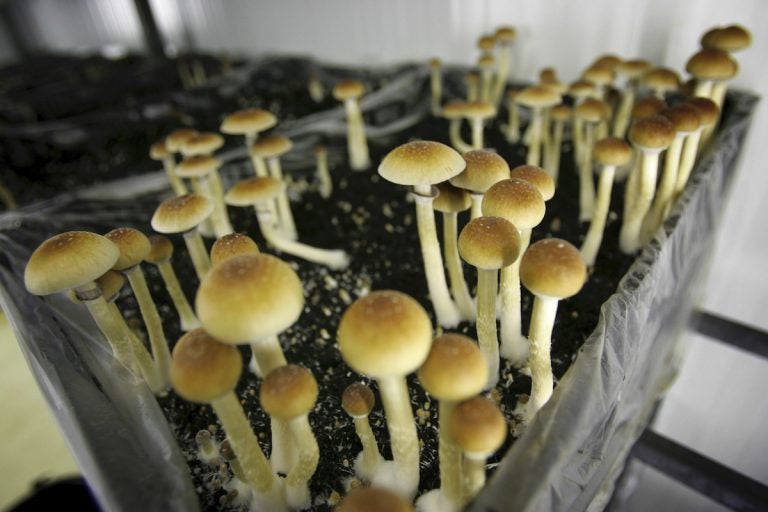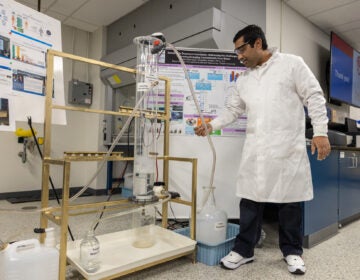Psychedelics and Therapy
Listen 48:50
AP Photo/Peter Dejong, File
After a decades-long hiatus, researchers are taking a fresh look at the potential of psychedelics in therapy. Could substances like ketamine, MDMA, psilocybin, and LSD help people with depression or PTSD? What are the risks? We explore the recent explosion of psychedelics research, and hear from people who have tried them to treat mental health issues.
Also heard on this week’s episode:
- Many people report having breakthroughs in therapy when using psychedelics, in part because they gain new perspective on an issue. Scientists call this “cognitive flexibility.” Neurologist turned teacher Judy Willis describes how she encourages that skill in her classroom, without the use of psychedelics.
- Last year, the FDA approved a ketamine-based nasal spray to be used for treating severe depression. Reporter Claire Tighe looks into how ketamine addresses depression, and how the nasal spray is impacting patients.
- Rick Doblin, executive director of the Multidisciplinary Association for Psychedelic Studies, or MAPS, joins us to discuss the history and future of psychedelics research.
- MDMA is being used in treating PTSD, and some researchers say it also has a role in couples therapy. Brian Earp, co-author of “Love Drugs: The Chemical Future of our Relationships” discusses how the substance works in tandem with therapy.
- Sandor Iron Rope lives in the Black Hills of South Dakota, and is part of the Native American Church. The church uses peyote in religious ceremonies. Sandor is wary of the scientific exploration of psychedelics, because he worries it will lead to the exploitation of a traditional and sacred Native American resource.
Segments from this episode
WHYY is your source for fact-based, in-depth journalism and information. As a nonprofit organization, we rely on financial support from readers like you. Please give today.






